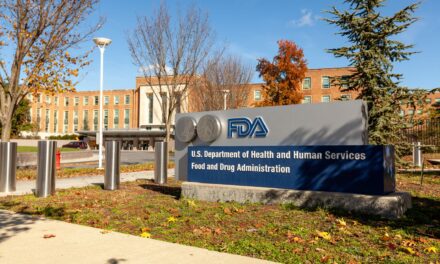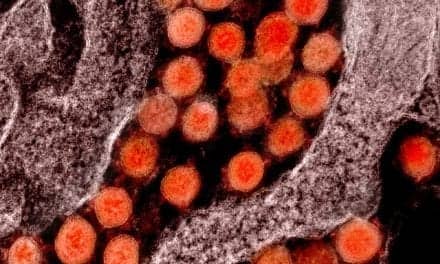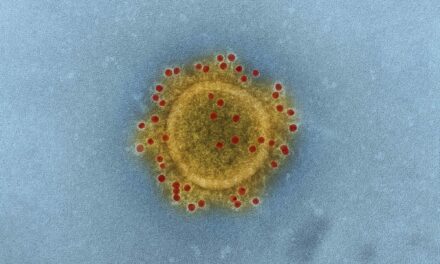Pfizer Inc released final results from an analysis of all 2,246 adults enrolled in its Phase 2/3 EPIC-HR (Evaluation of Protease Inhibition for COVID-19 in High-Risk Patients) trial of its novel COVID-19 oral antiviral candidate Paxlovid.
According to data, Paxlovid reduced risk of hospitalization or death by 89% (within three days of symptom onset) and 88% (within five days of symptom onset) compared to placebo, with no deaths compared to placebo in non-hospitalized, high-risk adults with COVID-19.
These results were consistent with the interim analysis announced in November 2021, showing Paxlovid significantly reduced the risk of hospitalization or death for any cause by 89% compared to placebo in non-hospitalized, high-risk adult patients with COVID-19 treated within three days of symptom onset. In a secondary endpoint, Paxlovid reduced the risk of hospitalization or death for any cause by 88% compared to placebo in patients treated within five days of symptom onset, an increase from the 85% observed in the interim analysis. The EPIC-HR data have been shared with the FDA as part of an ongoing rolling submission for Emergency Use Authorization (EUA).
“This news provides further corroboration that our oral antiviral candidate, if authorized or approved, could have a meaningful impact on the lives of many, as the data further support the efficacy of Paxlovid in reducing hospitalization and death and show a substantial decrease in viral load. This underscores the treatment candidate’s potential to save the lives of patients around the world,” said Albert Bourla, Chairman and Chief Executive Officer, Pfizer. “Emerging variants of concern, like Omicron, have exacerbated the need for accessible treatment options for those who contract the virus, and we are confident that, if authorized or approved, this potential treatment could be a critical tool to help quell the pandemic.”
EPIC-HR Final Results
In the final analysis of the primary endpoint from all patients enrolled in EPIC-HR, an 89% reduction in COVID-19-related hospitalization or death from any cause compared to placebo in patients treated within three days of symptom onset was observed, consistent with the interim analysis. In addition, a consistent safety profile was observed.
0.7% of patients who received Paxlovid were hospitalized through Day 28 following randomization (5/697 hospitalized with no deaths), compared to 6.5% of patients who received placebo and were hospitalized or died (44/682 hospitalized with 9 subsequent deaths). The statistical significance of these results was high (p<0.0001). In a secondary endpoint, Paxlovid reduced the risk of hospitalization or death for any cause by 88% compared to placebo in patients treated within five days of symptom onset; 0.8% of patients who received Paxlovid were hospitalized or died through Day 28 following randomization (8/1039 hospitalized with no deaths), compared to 6.3% of patients who received placebo (66/1046 hospitalized with 12 subsequent deaths), with high statistical significance (p<0.0001). Relative risk reduction was 94% in patients 65 years of age or older, one of the populations at highest risk for hospitalization or death; 1.1% of patients who received Paxlovid were hospitalized through Day 28 (1/94 hospitalized with no deaths), compared to 16.3% of patients who received placebo (16/98 hospitalized with 6 deaths), with high statistical significance (p<0.0001). In the overall study population through Day 28, no deaths were reported in patients who received Paxlovid as compared to 12 (1.2%) deaths in patients who received placebo.
In the EPIC-HR trial, in a secondary endpoint, SARS-CoV-2 viral load at baseline and Day 5 have been evaluated for 499 patients. After accounting for baseline viral load, geographic region, and serology status, PAXLOVID reduced viral load by approximately 10-fold, or 0.93 log10 copies/mL, relative to placebo, indicating robust activity against SARS-CoV-2 and representing the strongest viral load reduction reported to date for an oral COVID-19 agent.
Treatment-emergent adverse events were comparable between Paxlovid (23%) and placebo (24%), most of which were mild in intensity. Fewer serious adverse events (1.6% vs. 6.6%) and discontinuation of study drug due to adverse events (2.1% vs. 4.2%) were observed in patients dosed with Paxlovid, compared to placebo, respectively.
All other secondary endpoints for this study, which are available on clinicaltrials.gov (NCT04960202), were not yet available for this review. Full study data are expected to be released later this month and submitted to a peer-reviewed publication.
EPIC-SR Interim Results
Interim analyses of the EPIC-SR (Evaluation of Protease Inhibition for COVID-19 in Standard-Risk Patients) Phase 2/3 study, which included unvaccinated adults who were at standard risk (i.e., low risk of hospitalization or death) as well as vaccinated adults who had one or more risk factors for progressing to severe illness, showed that the novel primary endpoint of self-reported, sustained alleviation of all symptoms for four consecutive days, as compared to placebo, was not met.
The key secondary endpoint showed a 70% reduction in hospitalization and no deaths in the treated population for any cause compared to placebo. Additionally, there was approximately a 10-fold, or 1 log10 copies/mL, decrease in viral load compared to placebo, consistent with results from the Phase 2/3 EPIC-HR study.
The data were reviewed by an independent Data Monitoring Committee (DMC) and, based on the totality of the data available, the DMC recommended that the trial continue.
At the EPIC-SR interim analysis, which included 45% of the trial’s planned enrollment, 0.6% of those who received PAXLOVID were hospitalized following randomization (2/333 hospitalized with no deaths), compared to 2.4% of patients who received placebo and were hospitalized or died (8/329 hospitalized with no deaths). A follow-on analysis at 80% of enrolled patients was consistent with these findings. In this analysis, 0.7% of those who received PAXLOVID were hospitalized following randomization (3/428 hospitalized with no deaths), compared to 2.4% of patients who received placebo and were hospitalized or died (10/426 hospitalized with no deaths); p=0.051.
Treatment-emergent adverse events were comparable between Paxlovid (22%) and placebo (21%), most of which were mild in intensity. Rates of serious adverse events (1.4% vs. 1.9%) and discontinuation of study drug due to adverse events (2.1% vs. 1.2%) were also comparable between Paxlovid and placebo.
All other secondary endpoints for this study, which are available on clinicaltrials.gov (NCT05011513), were not yet available for this review. The study is now fully enrolled, and further data will be released upon analysis of the full study data expected later this month.










